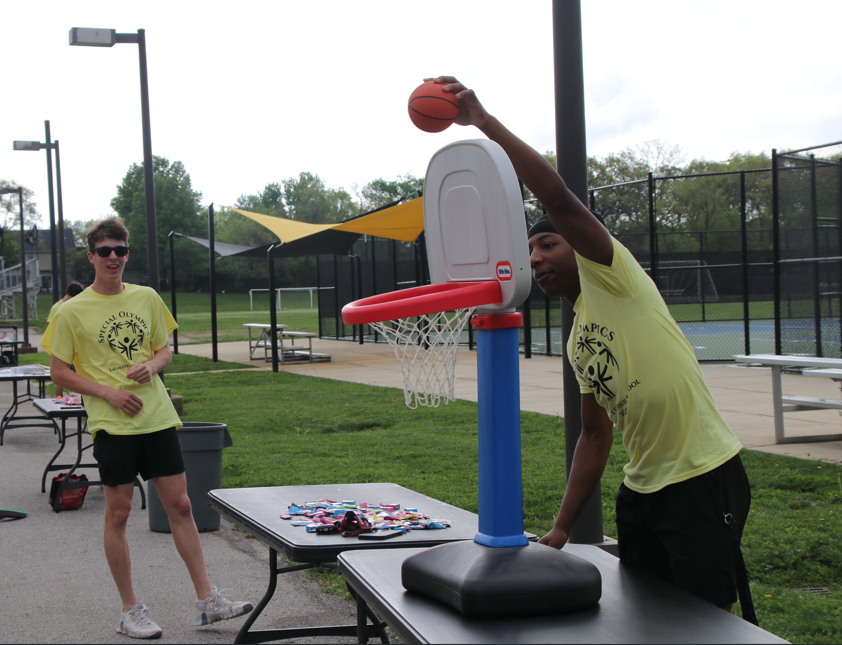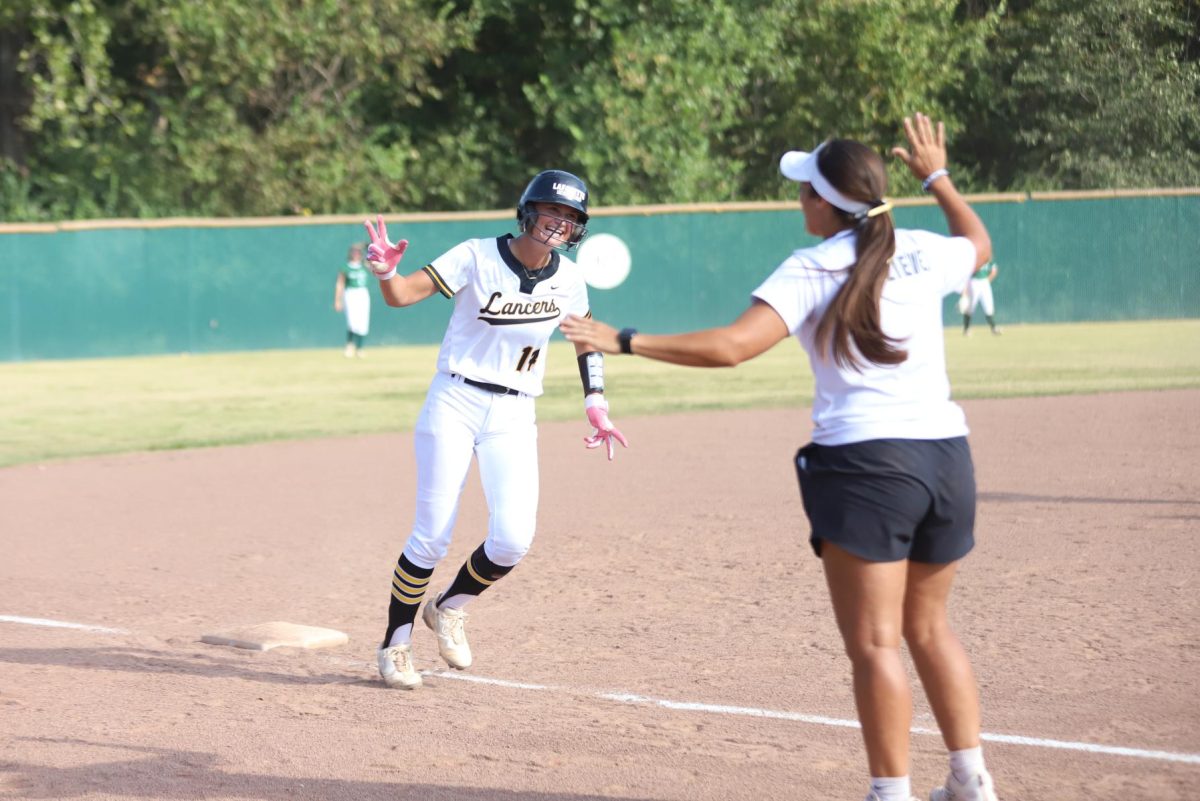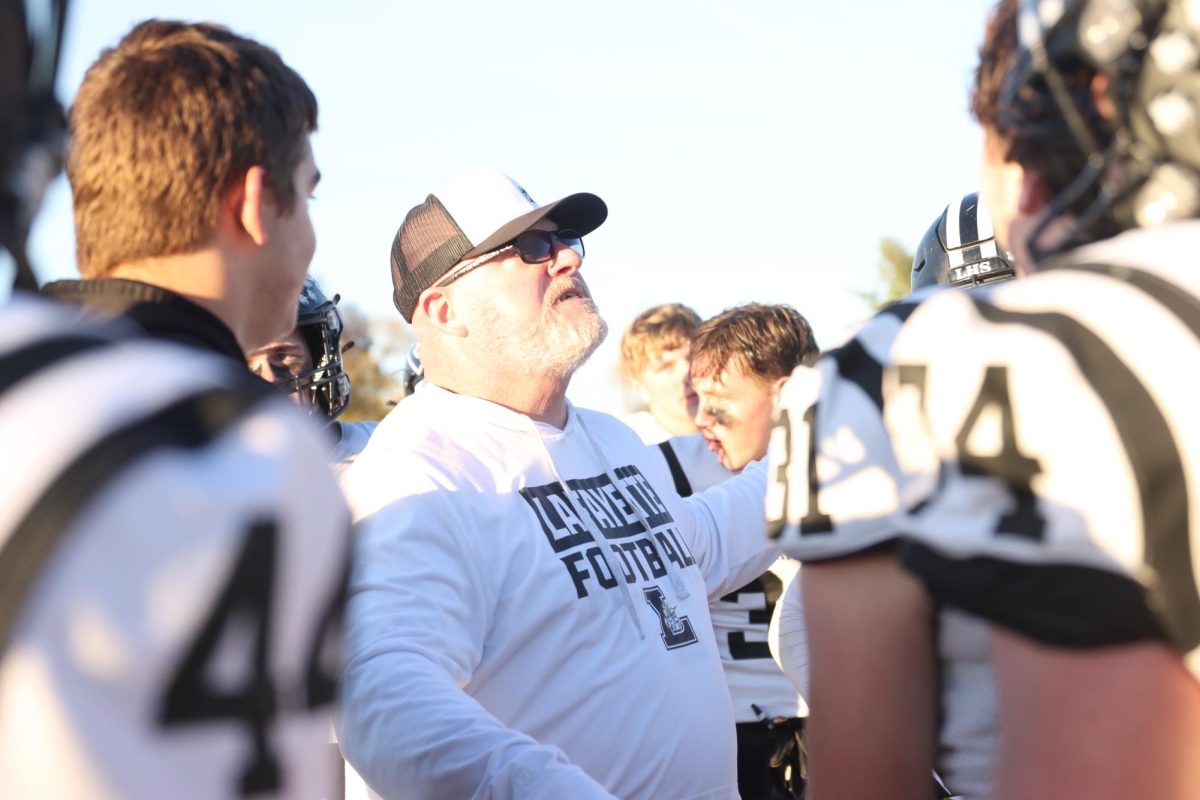Gas price increase pushes students, staff to adjust spendings
Prices at the local Phillips 66 gas station off of a roundabout on highway 109 are currently underneath the national average of $4.255. Prices have been steeply rising since the Russian-Ukrainian War began at the end of February of 2022.
March 20, 2022
Gas prices have been on the rise, and both students and staff around Lafayette have been struggling to pay for their own gas. The average gas price in the United States reached $4.255 on March 20 according to AAA.
Students, like senior Zach Patton, have had to make adjustments to their style of living because of the rise.
“I play volleyball, so I had to quit work to play volleyball for the spring season so I don’t have a job right now. I had to spend a bunch of money, money that I was trying to save beforehand when I was working, towards gas money,” Patton said.
The current conflicts created as Russia invades Ukraine have highly impacted the world market of oil, as several European nations who have depended on Russian oil have had to switch to other consumers and has led to a lower supply of oil on a worldwide scale. The international shortage has been difficult for many, including senior Maggie Lee and her friends.
“I know a lot of my friends, they have their jobs and they’re working all the time. It’s hard for them to have all their time spent and then the gas keeps coming up, just using all of their hard-earned money,” Lee said.
With the inconvenience, Lee and her friends have found alternative ways to save gas when making plans.
“If I go out, I make sure we’re riding in groups so that we aren’t going separately and we can just alternate who is picking up who,” Lee said.
Assistant Principal Colleen Fields has especially been hit by the shortage, as her commute to her home in South City can take over 35 minutes each day.
“I’ve always had a long drive to school. I kind of like that for my own decompressing and [to] amp myself up, depending on which way I’m going. When the gas prices go up, it makes it kind of hard,’ Fields said. “I’m not sure that I am ready to jump in and buy a new car yet, but it does make me think, do I need to start thinking about a hybrid if this continues? How long will it continue? Can I just hold out?”
Fields now has to think twice about how she goes about her driving, as she has been having to pay $50 about once or twice a week for a full tank.
“It makes me think about where I go and what I do and how many things I can do along the way instead of making separate trips. Like anything, it makes you think how you’re using your resources and try to be wise about that,” she said.
Readjusting situations to save on gas has been helpful for Fields, as she recently planned out where she and a friend who lives in Wentzville would meet to avoid using more gas than necessary.
“It’s just reorganizing those kinds of things, which is important. Just like the pandemic when we altered some behaviors that just kind of stuck, in terms of being mindful about your space, washing your hands, etc. I think its always good to keep us aware and make us more responsible about how we use our resources,” Fields said.
Junior Natalie Fischer has struggled to adjust to the sudden change.
“I feel like every paycheck I work for goes to gas. I have no extra money now. When I first got my car 2 years ago, it was $15 a tank. Now it’s $40 a tank,’ Fischer said.
Going into her second year as a traveling teacher, Spanish teacher Julie Bayha travels to teach Spanish at Marquette High School after 4th Hour. While she travels every day, the increase in gas prices has not affected her as a teacher because the district pays 58.5 cents for every mile she travels.
“There’s a rate per mile that if you travel from job site to job site, you can submit those miles,” Bayha said.
Still, Bayha has had to deal with the increasing gas prices as a parent who already has to drive a lot.
“I have two boys and they have activities, so it’s not just driving to work. My commute is about 30 minutes to work,” Bayha said. “My son had two soccer games this weekend that were 40 minutes away in Illinois. So that’s a lot- when you’re filling up more than once a week and it’s $65 or $75 to fill up a tank- that’s a strain on families for sure.”
For students who have vehicles or are considering buying one, Fields advises students to be responsible consumers of those resources.
“It’s really thinking about ways you can carpool to places, how you can do things in one trip as opposed to multiple trips,” Fields said. “Just being mindful and knowing we’ve got to conserve some things because resources run out.”
































![Although being only one of the two oboe players in the school, freshman Elise Morton said she will continue playing the instrument throughout high school. “[Playing the oboe] makes me feel special because I know I'm playing a rare instrument and I love having a challenge because there’s something to improve on and get even better,” Morton said.](https://lancerfeed.press/wp-content/uploads/2024/05/Elise-Morton-Featured-Photo-300x200.jpg)

